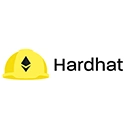Hardhat is a powerful Ethereum development environment that offers a variety of features designed to streamline the process of building decentralized applications (dApps) and smart contracts. Below are some of the main features of Hardhat:
1. Local Ethereum Network
Hardhat provides a local Ethereum network that allows developers to deploy and test their smart contracts quickly. This network is customizable and can be reset at any time.
npx hardhat nodeThis command starts a local Ethereum node. You can deploy your contracts to this network and interact with them as if they were on the main Ethereum network.
2. Smart Contract Compilation
Hardhat automatically compiles Solidity smart contracts whenever you run tasks or tests. It supports multiple Solidity versions and can be configured to suit your project needs.
npx hardhat compileThis command compiles all the smart contracts in the contracts directory and generates the necessary artifacts in the artifacts folder.
3. Testing Framework
Hardhat comes with a built-in testing framework that supports JavaScript and TypeScript. It allows developers to write tests for their smart contracts using the Mocha testing framework and Chai assertion library.
const { expect } = require("chai");
const { ethers } = require("hardhat");
describe("MyContract", function () {
it("Should deploy the contract and return the correct value", async function () {
const MyContract = await ethers.getContractFactory("MyContract");
const myContract = await MyContract.deploy();
await myContract.deployed();
expect(await myContract.value()).to.equal(0);
});
});4. Plugins Ecosystem
Hardhat has a rich ecosystem of plugins that extend its functionality. You can easily add features like contract verification, gas reporting, and more.
To install a plugin, you can use npm. For example, to install the Hardhat Ethers plugin:
npm install --save-dev @nomiclabs/hardhat-ethersAfter installation, you can use the plugin in your Hardhat scripts:
require("@nomiclabs/hardhat-ethers");5. Advanced Debugging Tools
Hardhat provides advanced debugging tools that help developers identify issues in their smart contracts. It includes stack traces, console logs, and Solidity debugging.
To enable debugging, you can use the Hardhat console:
npx hardhat consoleThis command opens an interactive console where you can interact with your deployed contracts and debug them in real-time.
6. Scriptable Deployment
Hardhat allows you to write deployment scripts in JavaScript or TypeScript. This feature helps automate the deployment process and manage complex deployments.
async function main() {
const MyContract = await ethers.getContractFactory("MyContract");
const myContract = await MyContract.deploy();
await myContract.deployed();
console.log("MyContract deployed to:", myContract.address);
}
main()
.then(() => process.exit(0))
.catch((error) => {
console.error(error);
process.exit(1);
});
Conclusion
Hardhat is a comprehensive development environment for Ethereum that provides essential features like a local Ethereum network, smart contract compilation, a testing framework, a rich plugin ecosystem, advanced debugging tools, and scriptable deployment.

